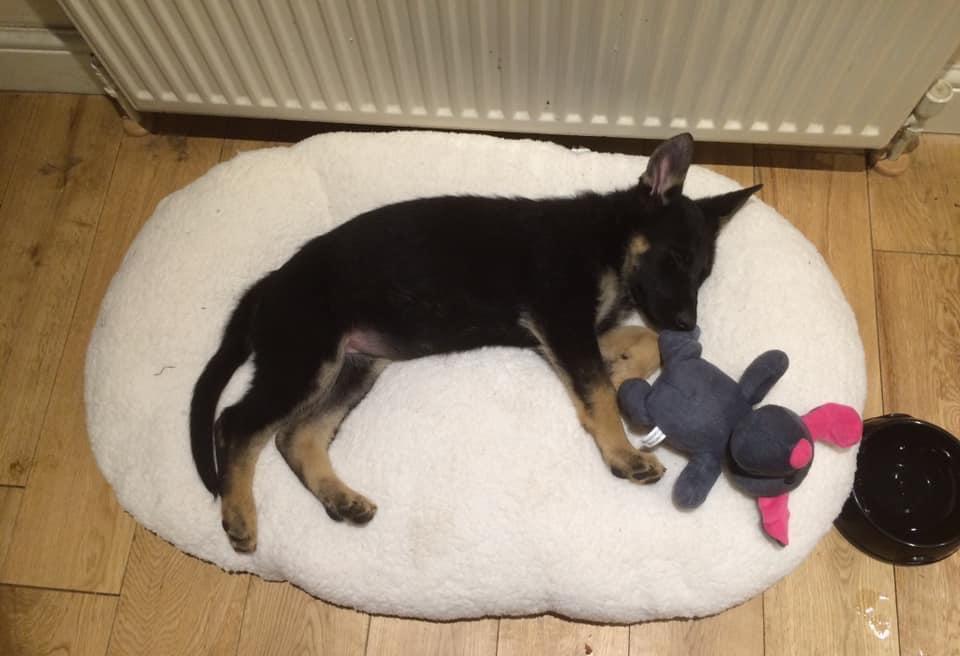You’ve chosen the perfect puppy and bought all the puppy supplies. The exciting day has now finally arrived and you are now going to be bringing home a German Shepherd Puppy.
But there are a few things you need to know and do first to make sure both your puppy and house are safe!
Lets take a look!
How to make your home safe for your German Shepherd puppy
Before bringing home your puppy, you need to make sure that your home is safe for them. The way puppies learn is by investigating things in their environment with their nose and mouth. Later when they start to teeth objects around the home can also become great things to chew on.
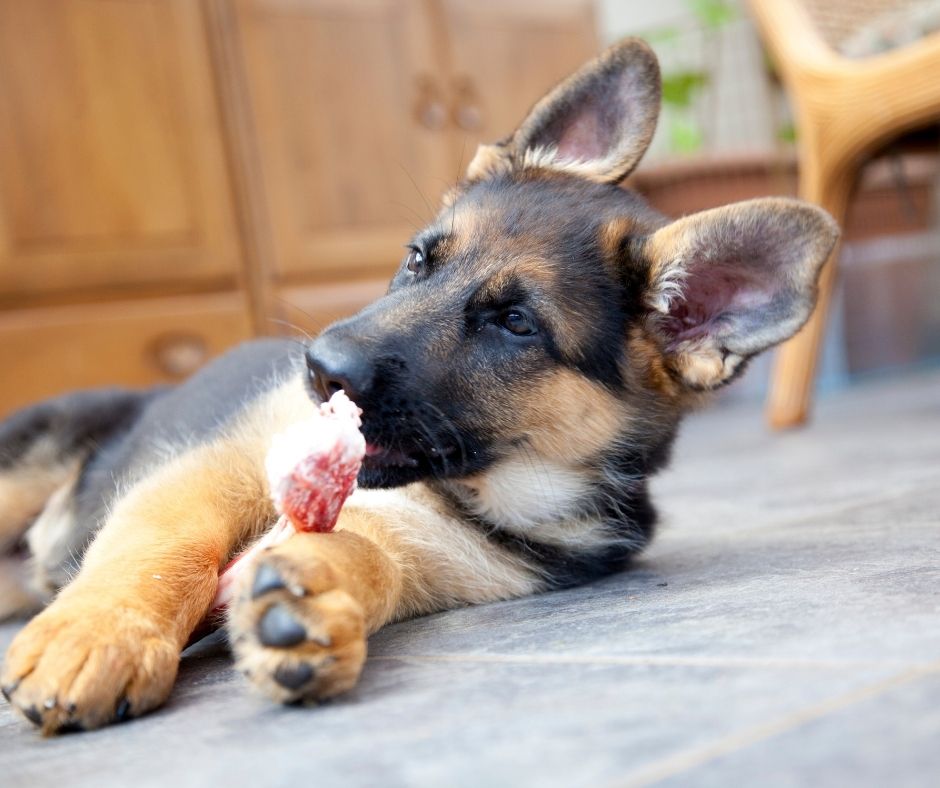
A lot of the everyday items we have in our homes today such as cell phones and tv remotes will be seen by your puppy as exciting new things to play with. To protect your things and ensure your puppy doesn’t get hurt you will need to see things from their perspective.
Having a puppy is like having an inquisitive toddler around the house. You wouldn’t allow your toddler access to anything harmful or leave them unsupervised near a pool. If you approach safety in a similar way to that you would with a human child then you are going to be 99% of the way there.
The only difference with puppies is they are faster and smaller meaning they can get into smaller spaces. They also have very strong jaws with sharp needle teeth. Chewing through an electric cable would take very little effort so please do be vigilant and keep your puppy safe from harm.
Below are a few tips on what to look out for.
Puppy Proof Living Spaces
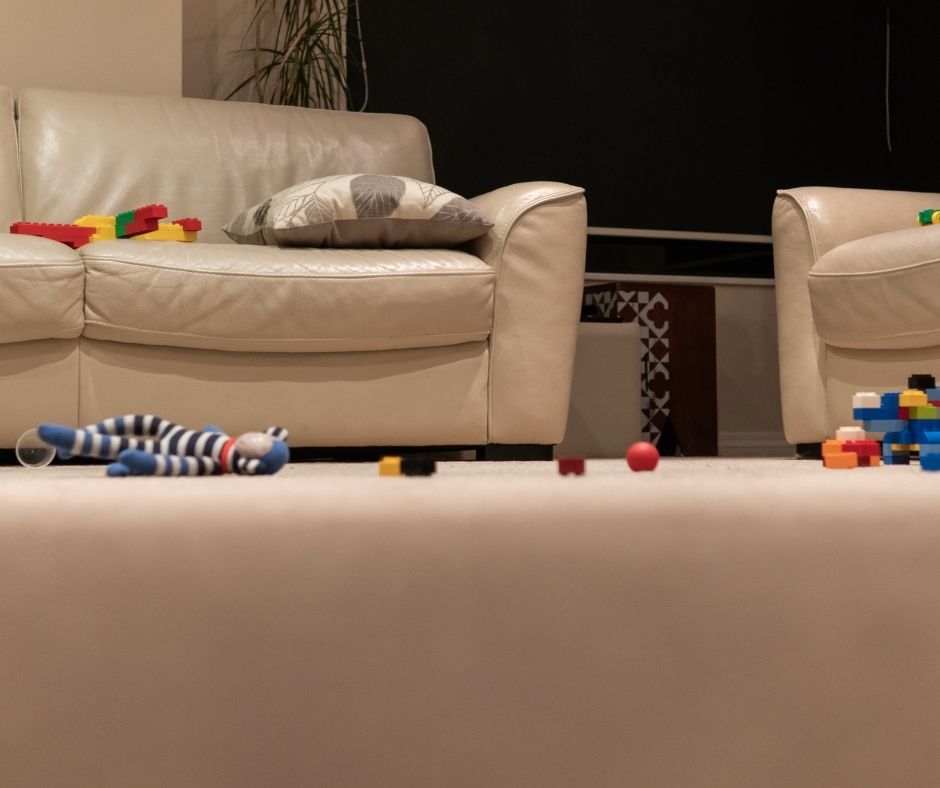
The only way to do this is to get down to their level and look at things from their line of sight. Yes, you need to lay on the floor and look around.
This is the ground-level view your puppy has. If there is anything you can see, cables, tassels, pens, crayons, kids toys, craft items etc your puppy is going to see them too.
Shoes are something puppies love to chew if they get the chance. Your puppy won’t care if the shoes are cheap and cheerful or expensive designer ones either so a word of warning especially if they are not yours. Find a place to put those shoes out of the way!
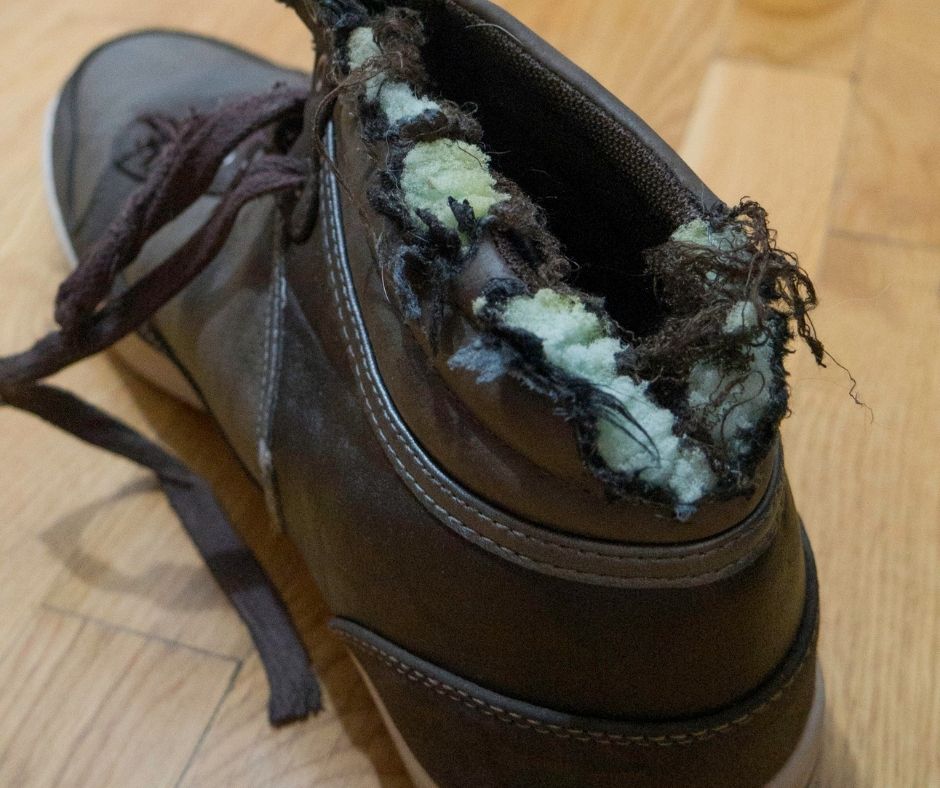
Houseplants are also an attraction to puppies and a lot can be harmful so keep them out of his way until they learn that it is something not to be touched.
They all need to be moved out of his reach and explain to family members that it is important, that they put things away. At best someone is going to get a beloved toy or expensive cell phone destroyed at worse your puppy’s health is at risk.
In the kitchen put childproof locks on any low cupboards containing anything that may be toxic to a puppy. Cleaning chemicals, insect repellants, chocolate, spices etc.
The same applies to the bathroom make sure your puppy cannot get hold of anything in there. As well as obvious medications innocent things like soap, shampoo bottles, and toothpaste tubes can be a huge attraction to a puppy.
Toilet paper rolls won’t get spared either. If you come from the UK you will have seen the Andrex Puppy commercials.
Picture a cute puppy running down the stairs tangled in toilet paper dragging the whole roll with it around the house.
The reason it was a great commercial is that many puppy owners could relate to it. You can also take it from me that German Shepherd puppies love to play this game too if left to their own devices.
How to Puppy Proof A Yard
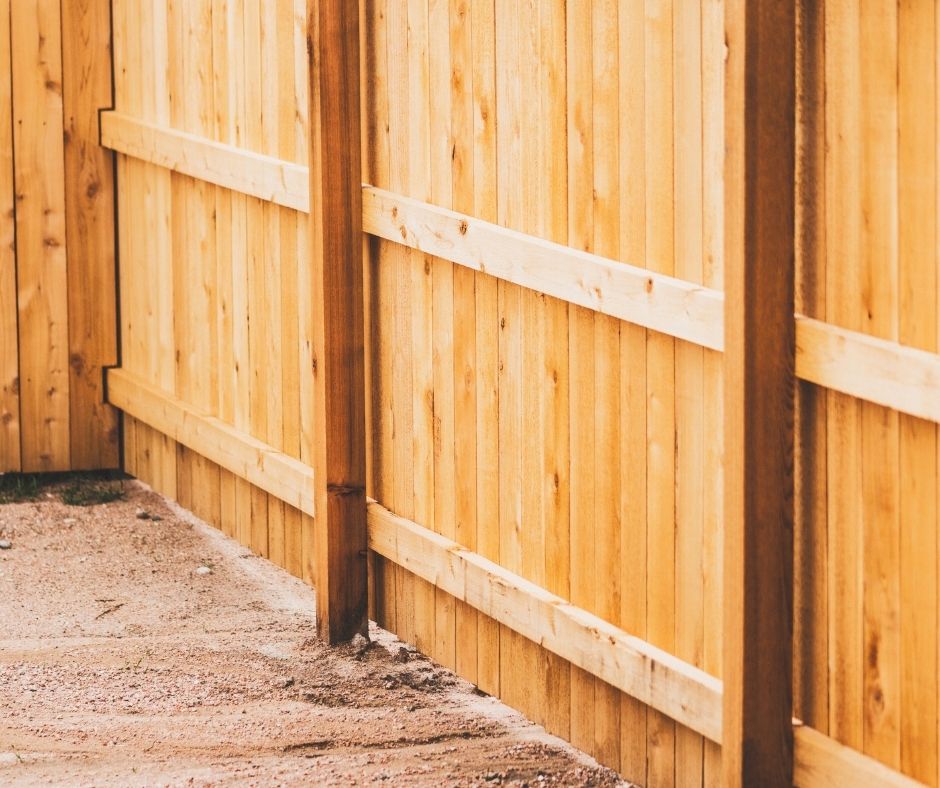
As well as the inside of your house your puppy is going to need access to an outdoor space for bathroom purposes. Until they have received all their vaccinations this area is also likely to serve as their main exercise area too. You need to make sure it is of course safe and suitable for their needs.
The first thing to do is make sure your fencing is secure. Puppies can be very Houdini and squeeze through the smallest of gaps so it’s essential that you make good any weak spots. German Shepherd Dogs are also protective by nature so may bark if they see strangers or other dogs through gaps in the fence. Whilst this can be dealt with in training until your dog has been socialised it is best that they cannot see through the fence.
If you have a pool or spa make sure your puppy can never get access to it. If he falls or even jumps in he is likely to struggle to get out and exhaust himself attempting to do so. Spa cables will also be something he is likely to find and want to chew.
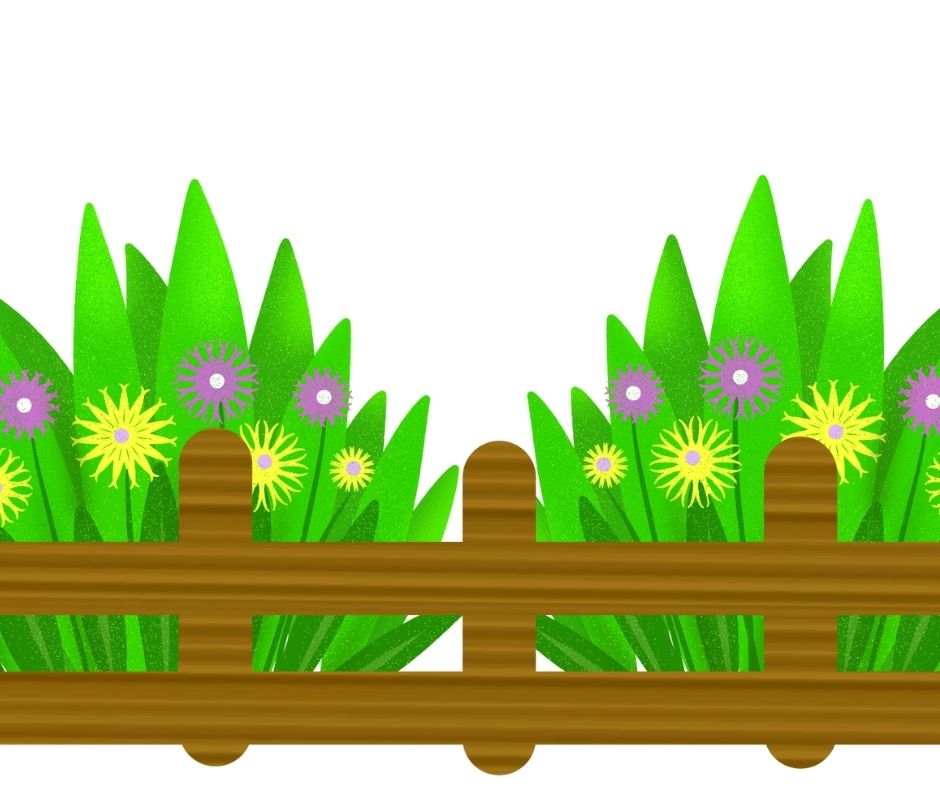
A lot of garden plants are poisonous to puppies and they are likely to want to test them out. It is best to cordon off all plants. Not only will this ensure that your puppy and plants will be safe it also teaches them early on that the area is out of bounds.
Puppies also like to dig so if you are a person who is very meticulous about their garden consider building a puppy run. This should not be a substitute for quality time spent outdoors with you as a family when they can be supervised. German Shepherds are very social dogs and are happiest being with you.
If you live in a climate that grows fungus as we do in the UK then it is wise to check for these often. I experienced this first hand unfortunately with Bella my female. She was only about 3 months old at the time and ended up with a very bad bout of diarrhoea that was very worrying. We had no idea what could have caused it until my son noticed a fungus growing at the back of the garden with little bites out of it. These bites happened to be a perfect mould of Bella’s little mouth.
We were very lucky that they were not as toxic as they could have been but it is something that I check for all the time now even though my dogs are adults.
Travelling Home With Your New Puppy
Now that you have puppy-proofed your home and yard you are ready to go and collect your puppy. If you are collecting your puppy on foot and they are younger than 3 months old they will not have received all their vaccinations. You will need to carry them to ensure they don’t walk in an area where a disease infected dog has been.
If you are collecting your puppy via vehicle then you must put safety first. This is likely to be the first time your puppy has travelled in a vehicle. Each puppy reacts to new things differently but what is for sure is that your puppy is unlikely to stay still for the duration of the journey.
He or she will likely want to explore or hideaway somewhere dark and cosy. That dark and cosy place could well be the footwell of the vehicle where you need to operate the brake. They will, without doubt, distract you and at best you could end up with a ticket.
If you are collecting the puppy on your own or with children then I would advise that you use a travel crate. These are purposely designed to fit into the vehicle and are the safest way to travel with any pet.
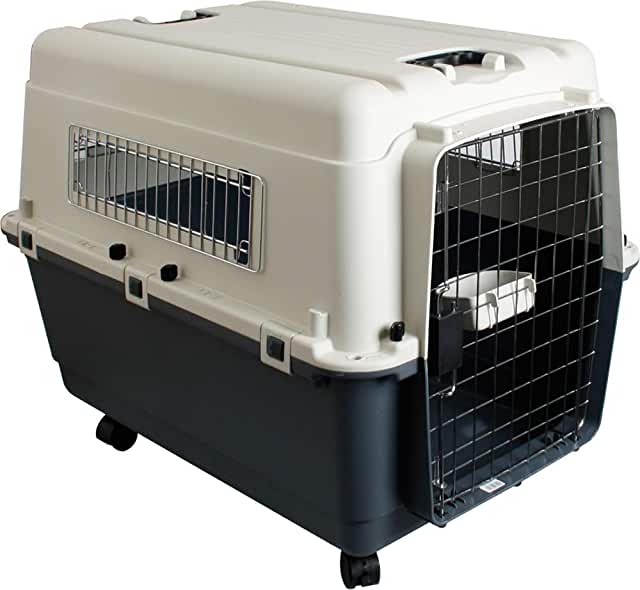
If you are travelling with another adult then it is possible to use a harness and specially designed seat belt connector. This is an attachment that clips to the harness and uses the normal seat belt as the restraint.
As it is the first time your puppy has travelled or worn a harness I would also recommend that the adult sits next to your puppy in the vehicle too. This will ensure they are able to assist if the puppy becomes distressed. It is also advisable to have an old towel under your puppy, they may use the bathroom or be sick during the journey.
What should you do after you bring your new German Shepherd puppy home?
Although this is an exciting day for you it will be a scary and stressful one for your puppy. Up until now, he or she has enjoyed the security of being part of a pack with their siblings under the protection of their mother. To find themselves separated from this security is going to be quite an upset for them to comprehend and not all puppies will show it.
For this reason, it is important to make sure your puppy is not overwhelmed on their first day. This is especially so if they have already had to endure a long road trip. They need time to settle in and get used to their immediate family members before being introduced to anyone else.
The first thing to do is to give your puppy a bowl of freshwater. Make sure you put it in the place where you intend to permanently keep it so that your puppy knows where to find it in future. They will need a lot of rest so you should provide a warm comfortable place for your puppy to sleep. It’s also a good idea to introduce a stuffed toy that they can cuddle up to as a surrogate sibling.
It is not unusual for a puppy to be playing vigorously one second only to suddenly drop down fast asleep the next. Make sure your kids know this and respect your puppy’s nap time. A tired puppy is not a happy puppy and it will hinder its development.
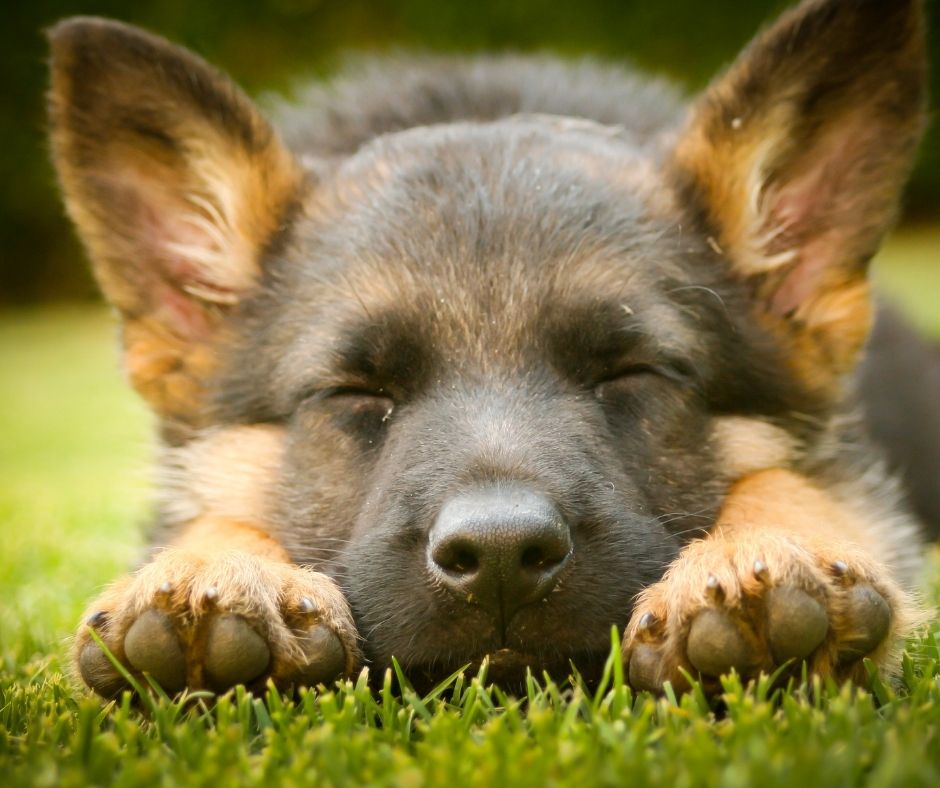
Also don’t allow your puppy to play with anything that is not intended to be a dog toy. I have heard of people giving them old socks or shoes to play with. This is a really bad idea as your puppy can easily chew and swallow socks and laces which can cause severe blockages likely to require surgery.
Not only is it a detriment to their health it also teaches them that it is ok to play with those items. They won’t know if it’s a new pair of shoes or an old pair. They are just shoes so you are going to raise one very confused dog.
Also, German Shepherd puppies and full-grown German Shepherd Dogs love to de-stuff cuddly toys. It is therefore essential that if you give your dog a cuddly toy it is one designed for dogs. Those that aren’t may contain toxic materials or small parts that could choke your puppy.
Training A German Shepherd Puppy
It is also not too early to start a training schedule. It is easy to put this off when your puppy is so small and cute but they are very intelligent dogs and will be learning very fast every minute of every day.
Your puppy needs to know a few ground rules from day one as it is much harder to backtrack later on. For example, if you don’t want your puppy to go on the couch or lie on your bed when he or she is an adult don’t allow them to do it now.
Your breeder may have started to potty train your puppy and if so it is important that you continue with this as soon as your puppy comes home. If your breeder has started to implement this ask them what the routine is they were doing as your puppy will already be used to this.
If not you will need to learn how to potty train your puppy. Puppies usually feel the need to eliminate immediately after waking and after a meal. Make sure these times are definitely included in the schedule. You will also want to be taking your puppy out a lot more often than this until he or she starts to tell you when they want to go out.
Likewise, your breeder will probably have got your puppy used to a collar. They do this to identify the puppies in the litter but if not then you are going to have to get it used to one. You need to make sure the collar is strong, soft and adjustable as your puppy is going to be growing fast in the coming weeks. Make sure it is not too tight or too slack.
I usually test this by ensuring that I can fit two fingers underneath it. If you have larger fingers then maybe just one. Make sure it is tight enough so that the puppy cannot pull it off over its head but loose enough to ensure you can get a finger or two underneath it.
Take your puppy’s collar off when left unsupervised too as collars can easily get caught on things and result in strangulation.
You will also want to get your puppy used to basic commands of come, sit, down, stay, heel and no.
How will your german shepherd puppy behave?
Each puppy is different so there is no way of predicting how they will behave when they first arrive. Many are excited at having somewhere new to investigate, whilst others may like to be a little more reserved. Whatever the reaction your puppy may have once they are alone they are going to miss the warmth and security their mother and siblings gave them.
Your puppy needs to feel safe and secure in its new environment. If your puppy needs to be left alone for a short while then I would recommend that you get a crate. This will give your puppy a time out place to go that he will come to know as his own space and is also a secure place for them to be whilst home alone.
What should you do if you have other pets?
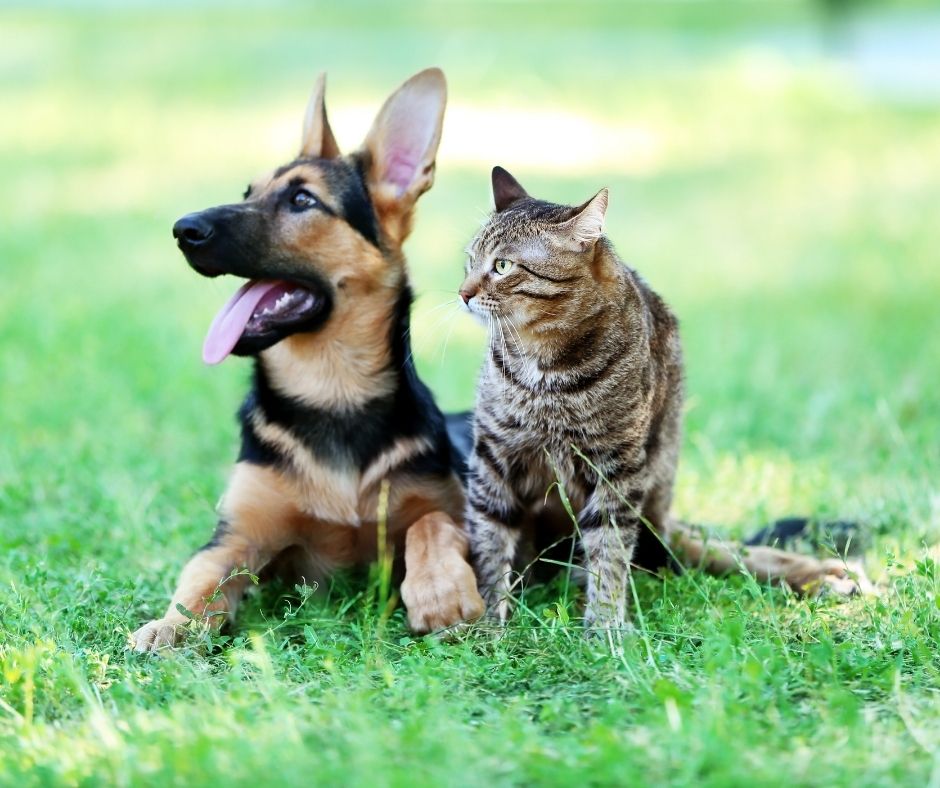
Your puppy should be fine with other pets although he or she may feel a little bit intimidated by them at first especially if it is a bigger dog. You don’t want to cause any distress on an already stressful day but you are obviously going to have to introduce them. I have found that the best way to deal with this is just to ensure you have control of both pets when they first meet.
The main issue I had was my older dog wanted to play too much with a tiny puppy and was a bit rough. I had to separate them from time to time over a few days until the novelty of the new puppy wore off. They are now best friends and inseparable.
I also found that the cats I had at the time were ok with the dog they were introduced to as kittens but hated the new puppy with a vengeance. Both dogs never had an issue with the cats at all.
What should you do if you have a child?
German Shepherd Dogs make great pets and are generally really good with children. Puppies and children are an ideal match as they both have so much energy to burn off. German Shepherd puppies and German Shepherd adult dogs too love to play with children and will often gate crash games.
You do need to be aware that as your puppy grows he or she will also have a tendency to play with their mouth. Even though there is no intentional aggression there your puppy’s teeth are very sharp. Play fighting is a natural way for a dog to play with another dog but it is not acceptable behaviour to us humans, especially where our children are concerned.
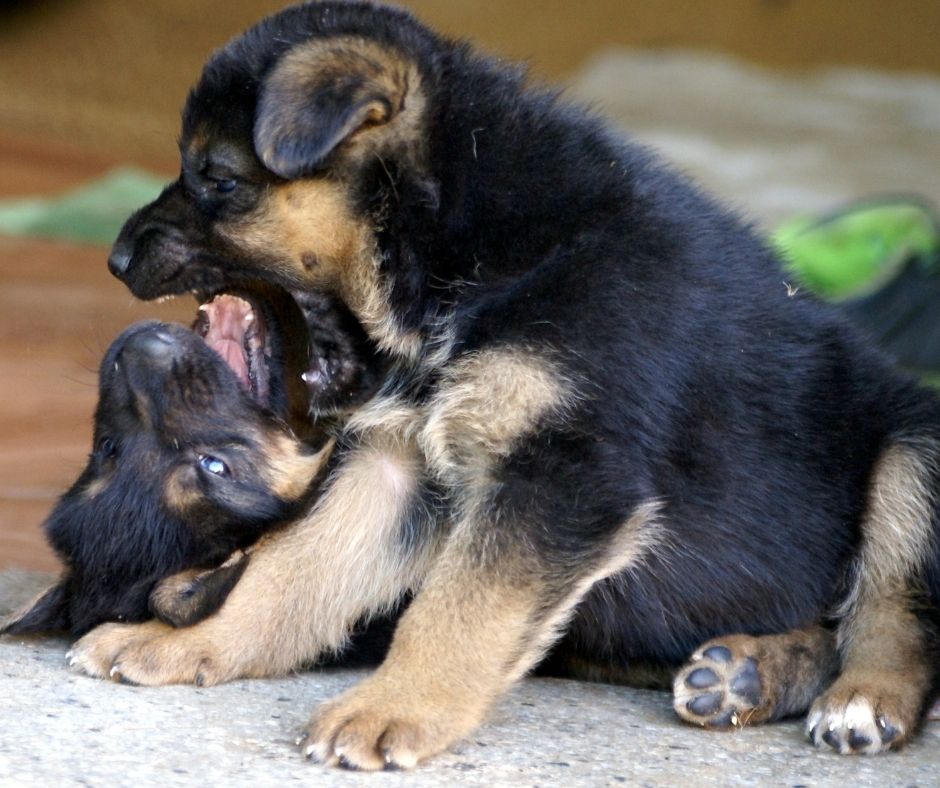
You should always stop a puppy from carrying out this type of play with humans. Your puppy needs to know that it is not acceptable to play fight with a human in this way.
Also, tell your children not to run from a German Shepherd puppy as they will think it is a chase game. This may look funny when your puppy is small but think about what it will look like when your dog is fully grown and its chasing the kids at the park.
Don’t set your dog up to look scary and out of control discourage this type of play from day one.
The First 48 Hours
The first 48 hours with your puppy is going to be both an exciting and nerve-racking time. This little cute bundle you have waited so long for is finally here but you now feel bad for taking it from the comfort of its mother and littermates.
You are also trying to make sure you do everything right and hearing your puppy crying is breaking your heart.
First of all, it is normal for your puppy to cry for its mother and littermates. Whilst this can be distressing to hear it won’t last for long and they will soon realise that you and your family are its new pack.
They just need a bit of time to become accustomed to their new environment. All you need to do is give them lots of love and reassurance.
I understand that not everyone wants their dog in the bedroom but personally, I like them with me and I also know they like to be with me too. I think that it really helps if your puppy can hear and see you even if they are in their crate rather than being left in a dark room all by themselves.
The weeks to come
As each day passes your puppy will be growing and learning from everything you do. It is more important than ever that you continue with a scheduled socialisation and training routine. Bad habits later on usually occur as a result of a learned behaviour during these early stages of your puppy’s life.
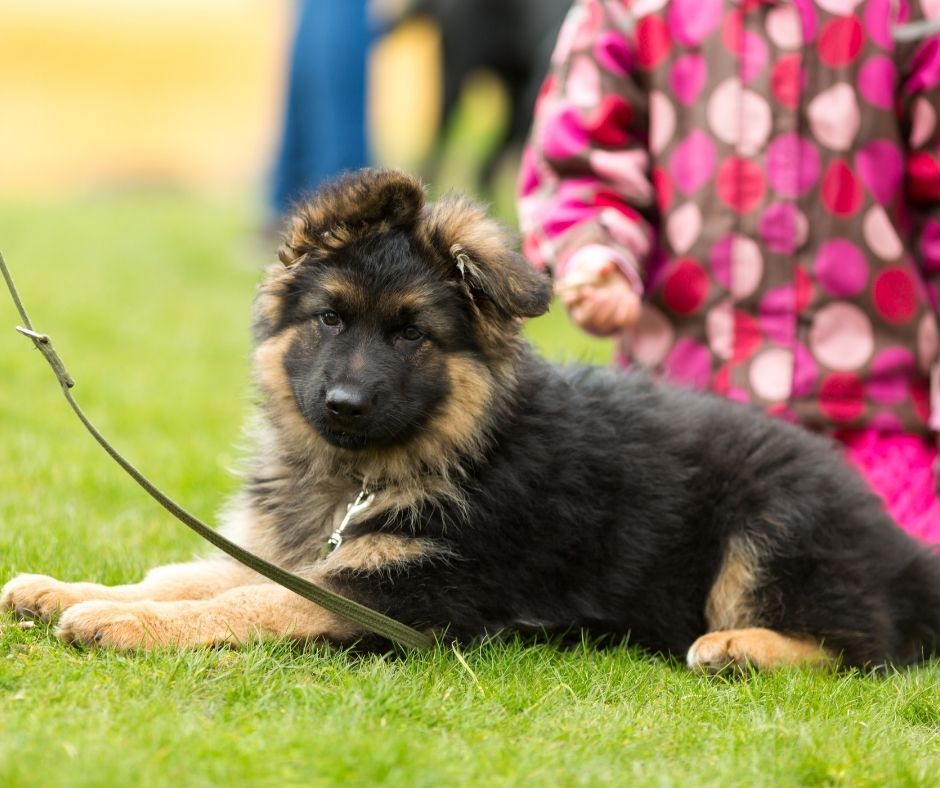
German Shepherd Dogs are very intelligent and respond well to positive training techniques. They are however only going to be as good as the person who trained them.
By that I mean you.
Good trainers don’t train your dog they show you how to communicate with your dog. There is little point in sending your dog away to learn a load of super skills if you don’t know how to communicate to him or her when those skills are needed.
If you don’t have a proper training routine they will simply learn by watching you dashing about in your daily life.
They get to know what time the mail arrives, what time the kids go to school and even know that grandma visits on a Sunday. If they are not taught how you want them to behave when events happen they will use their instincts and behave in the German Shepherd K9 way.
The mailman will be an intruder needing to be scared off. The post he delivers will be seen as a deadly object that needs to be disposed of. The neighbour’s dog is coming too close to the boundary fence and needs to be told to move back etc etc.
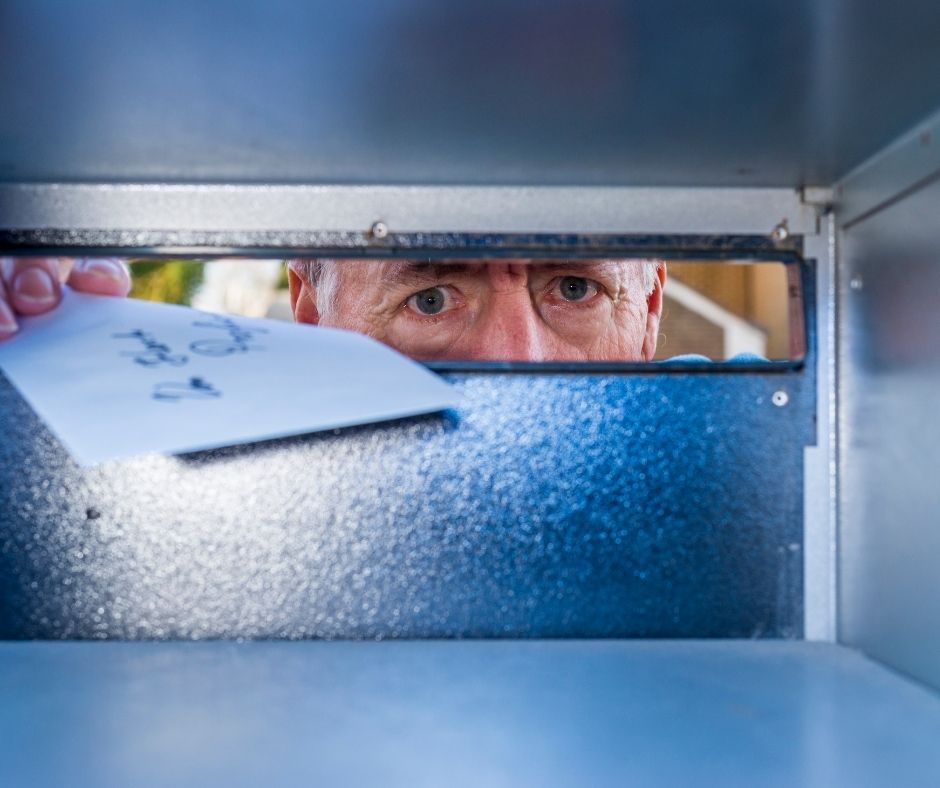
…. ok you get the picture.
For the reasons above it is so important that you take the time to educate yourself on how to train your German Shepherd Puppy.
Even though German Shepherd Dogs are intelligent and respond well to positive training it still requires effort from you. Perseverance is key to success here. Many people set out with good intentions but give up too quickly and then don’t actually do anything about it again until there is a problem. At which point the dog is blamed.
It doesn’t matter if you choose to read a book, take a course or use a trainer. The main thing is that you educate yourself and then use that education to communicate with your dog. It will save a lot of frustration later on believe me. It is much easier to train a dog the right way once than to train out of them a bad habit.
Final Thoughts on Bringing Home A German Shepherd Puppy
Bringing a puppy home is one of the most exciting things you can do but there are also a lot of other things you need to plan to make sure it all goes smoothly.
Bringing a German Shepherd puppy into your family is a wonderful thing but it is a responsibility that needs to be taken seriously. You will also need to know how to raise your German Shepherd puppy to become a well-behaved German Shepherd Dog.
Ensuring your puppy is healthy, happy and safe is at the top of the agenda but you also need to make sure you have a training schedule in place from day one.
When you get a puppy at 8 weeks old the majority of its training will have been carried out by its mother and siblings. It has been taught the basic life skills of being a K9 but it now needs to know how to live in the world of humans. It is your job to take over from this basic training and teach your puppy everything it needs to know about being a German Shepherd family pet.
Thank you for taking the time to visit our site. I hope this article has given you some guidance on what you need to think about and put into place when bringing home a German Shepherd Puppy.
If you have any questions or would like to share your own experiences please let me know in the comments below.
